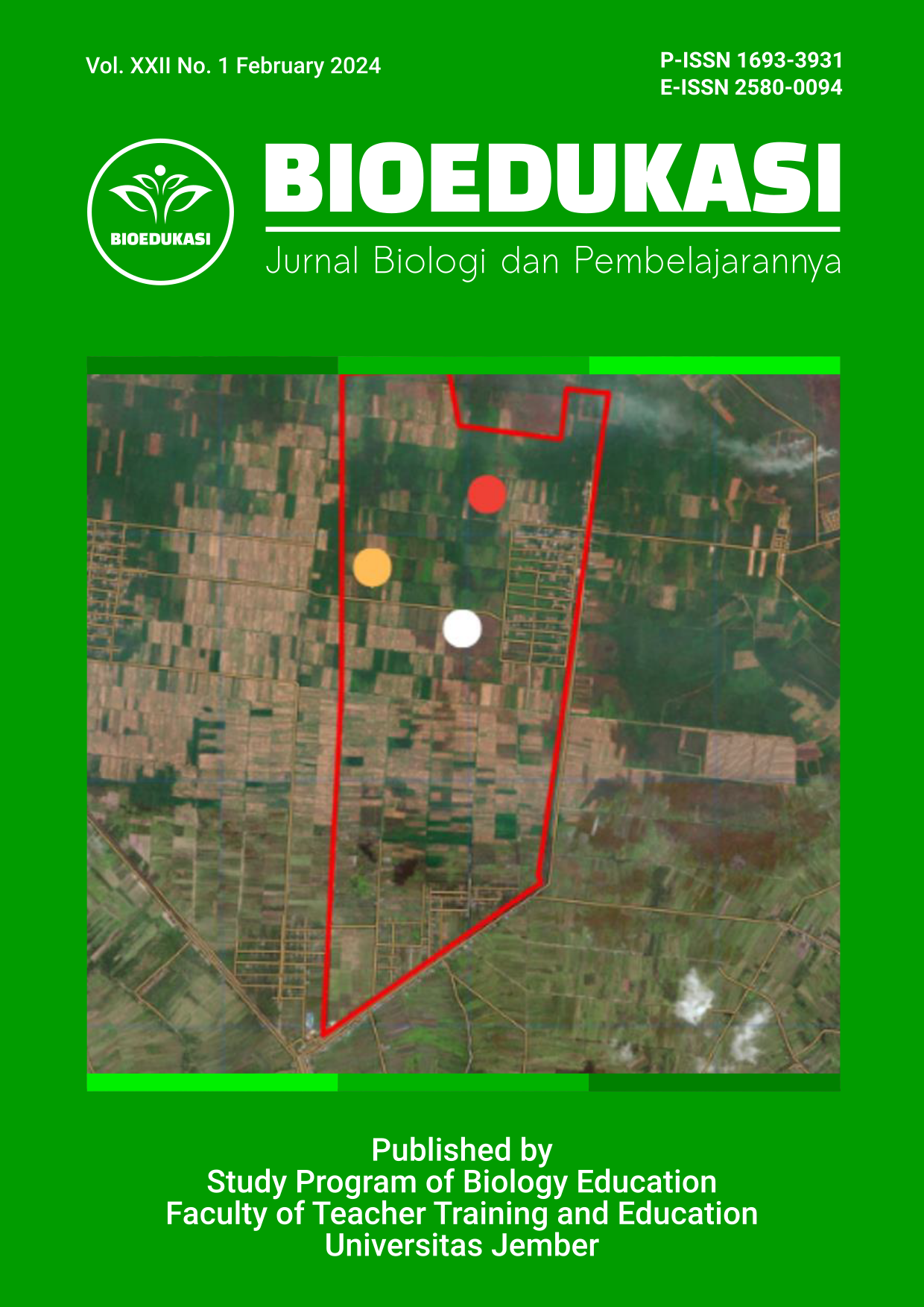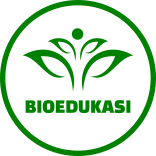Developing a PBL Based E-Module on Plant Structure and Development Subject with Formative Assessment to Improve Students’ Collaborative Problem-Solving (CPS) Skill
DOI:
https://doi.org/10.19184/bioedu.v22i1.44673Keywords:
Collaboration Problem Solving, Development e-module, Problem Based LearningAbstract
Collaborative problem solving (CPS) is a learning activity in which students work in small groups to achieve common goals. Students’ CPS skills can be assessed through observation, self-assessment, and peer assessment. To enhance CPS skills, the Problem Based Learning (PBL) model can be applied. This study aims to develop a PBL-based e-module on Plant Structure and Development specifically on pollination and fertilization with self-assessment and peer assessment to improve the students’ collaborative problem-solving skills. The research and development method in this study follows the pattern established by Lee and Owens. The population of this study consisted of Biology Education students at UM (Universitas Negeri Malang) and students from private universities in Malang. Purposive sampling was used for sample selection. The instruments used were survey and questionnaire. Based on the results of pre-test and post-test, it can be concluded that the use of the e-module can improve the students' CPS skills. Based on the validity, practicality, effectiveness tests; as well as implementation of the learning syntax, it is known that the e-module is valid and practical without any revisions, moderately effective, and very good in terms of the implementation of the learning syntax.
Downloads
References
Boud, D. (2013). Enhancing Learning Through Self-assessment (1st Editio). Routledge Falmer. https://doi.org/https://doi.org/10.4324/9781315041520
Chin, P. (2016). Peer Assessment. New Directions in the Teaching of Physical Sciences, 3, 13–18. https://doi.org/10.29311/ndtps.v0i3.410
Fuad, A. Z., Alfin, J., Fauzan, Astutik, S., & Prahani, B. K. (2019). Group Science Learning model to improve collaborative problem solving skills and self-confidence of primary schools teacher candidates. International Journal of Instruction, 12(3), 119–132. https://doi.org/10.29333/iji.2019.1238a
OECD. (2016). Chapter 4 tables: How skills are used in the workplace. OECD Publishing. https://doi.org/https://doi.org/10.1787/9789264258051-table78-en
OECD. (2017). PISA 2015 COLLABORATIVE PROBLEM-SOLVING FRAMEWORK. Journal of the Learning Sciences, 2(2), 1–5. https://doi.org/https://doi.org/10.1080/02602930802691572
Pratiwi, H. R., Juhanda, A., & Setiono, S. (2020). Analysis Of Student Collaboration Skills Through Peer Assessment Of The Respiratory System Concept. Journal Of Biology Education, 3(2), 110. https://doi.org/10.21043/jobe.v3i2.7898
Ramos Salazar, L., & Hayward, S. L. (2018). An Examination of College Students’ Problem-Solving Self-Efficacy, Academic Self-Efficacy, Motivation, Test Performance, and Expected Grade in Introductory-Level Economics Courses. Decision Sciences Journal of Innovative Education, 16(3), 217–240. https://doi.org/10.1111/dsji.12161
Sari, I. A., Yusrizal, Y., & Duskri, M. (2018). Pengembangan Lembar Self-Assessment untuk Meningkatkan Kemampuan Pemecahan Masalah Siswa SMP melalui Pendekatan Saintifik. Jurnal Didaktik Matematika, 5(2), 40–52. https://doi.org/10.24815/jdm.v5i2.11975
Sa’dun Akbar, M. P. (2017). Instrumen Perangkat Pembelajaran. PT Remaja Rosdakarya.
Sihombing, N., & Dwi Suyanti, R. (2022). Pengaruh Model Learning Cycle Berorientasi Collaborative Learning Berbantuan E-Modul Laju Reaksi terhadap Kemampuan Pemecahan Masalah Siswa. Jurnal Indonesia Sosial Sains, 3(3), 419–427. https://doi.org/10.36418/jiss.v3i3.560
Wulandari, D. D., Adnyana, P. B., & Santiasa, I. M. P. A. (2020). Penerapan E-Modul Interaktif terhadap Motivasi dan Hasil Belajar Siswa pada Pembelajaran Biologi Kelas X. Jurnal Pendidikan Biologi Undiksha, 7(2), 66–80
Xu, D., Dai, M., Tang, H., Hung, J. L., Li, H., & Zheng, J. (2022). A multimodal analysis of college students’ collaborative problem solving in virtual experimentation activities: a perspective of cognitive load. Journal of Computing in Higher Education, 0123456789. https://doi.org/10.1007/s12528-022-09311-8






